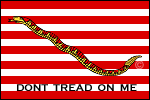What Time Is It, Again?
There are many challenges a crew faces when they deploy. Today’s challenge is changing time zones. As we travel west, we'll have to set our clocks back nine or ten times, depending upon where we finally end up. Then of course, the opposite will be true as we return. Even operating in the same fleet area can require time changes every few days or weeks.
One tricky bit is planning when to execute a time change. Since the ship operates around the clock, no matter when you schedule a time change, it's going to be a source of consternation to someone. If you move clocks back during the day, some will complain about the extra hour of work. If you move them back at night, others will complain about the extra hour of watch during what can be a long, slow night.
Another tricky bit is communicating to the crew when the change will happen. Every path of communication must be used. The Plan of the Day must include a schedule item. Word must be passed and reiterated through the chain of command at morning quarters and the evening operations brief, and announcements must be made over the 1MC. Still it seems there’s always somebody who doesn’t “get the word”.
Finally, events scheduled near the time change demand extra planning. For instance, if we decide, or the staff tells us to turn back the clocks at 2000 and we have a regular meeting scheduled at 1930, when is the meeting - on the first 1930 or the second? Decisions, decisions.



7 comments:
I'm curious as to why you don't just use a standard time like GMT/Zulu time like pilots do?
Way back when, We tried (as much as possible) to change times during the 0300-0700 watch when westbound and during 2200-0300 watch when eastbound. This way when westbound, no watch was longer than 5 hours, and when eastbound the two night watches were 4 hours. Pretty much the best that can be done IMHO.
Eh? I thought that's what Zulu time was for. :P
"Finally, events scheduled near the time change demand extra planning. For instance, if we decide, or the staff tells us to turn back the clocks at 2000 and we have a regular meeting scheduled at 1930, when is the meeting - on the first 1930 or the second? Decisions, decisions."
Sounds like a job in 'anywhere' corporate America, where we often do everything twice without the time zone issues.
You would think that on a ship at sea the schedule would all run on ship time, sort of like the do in space..Just a suggestion
We do use Zulu Time for some things, and I've heard that some submarines use nothing but zulu time when at sea, but it's hard enough getting SN Timmy to set his watch back at the right time. Teaching him to use Zulu all the time presents even more challenges.
Every merchant ship I was on would split the time change over the three watches. Assuming that we were only changing one hour that day, each watch would advance or retard the clocks 20 minutes starting with the 2000-2400 watch. Then again, you do not have the coordination demands on the merchant ship as you have on a Navy ship.
Things got more fun when the Captain decided to change clocks more than one hour overnight. Try one hour per watch!
Post a Comment